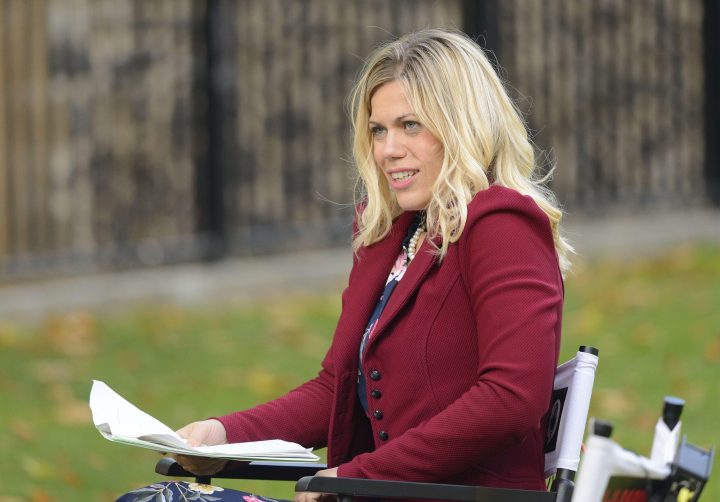I’m starting to feel sorry for Miriam Cates. Every time she expresses an opinion, her words are either coarsely inflated beyond recognition or fiercely spat back at her.
Her latest remarks on children, some of which were made on a Daily Telegraph podcast and others in a speech at National Conservatism Conference on Monday, have already been branded many things from naïve to ‘chilling’. The Mirror ran a piece mockingly entitled ‘Tory fumes we are not having enough kids in rant at Marxist threat to children’s souls.’
Do women not deserve the option to fully be present in those early years?
When asked about the government’s latest plans to allow 30 hours of free childcare for working parents with infants aged nine months or older, Cates had this to say: ‘It is absolutely wrong…The idea that the role of a parent, the role of a mother is to get back to work and contribute to GDP, and that you can somehow outsource that unbreakable bond to institutional childcare. As brilliant as those care workers may be, no one can replace mum.’
In these pages, Zoe Strimpel has dismissed that idea as ‘naive and uncreative, strongly rooted in sentimentalised Victorian ideas of domesticity’. Strimpel says that while nursery workers and babysitters cannot replace mum, they can still do a great job. She was not the only one to say that when it comes to childcare, Cates has it wrong.
Only a few years ago, I would have taken solace in Strimpel’s words – the ‘no one can replace Mum’ smug types made me gag. People who preached to me about the selflessness of women who didn’t work seldom acknowledged that making such a choice depended on the financial freedom. Like so many women, I did not enjoy that freedom.
Deep down, however, I was never really at ease with the amount of time I spent away from my sons. And my conversations with other mothers revealed that they shared the same disquiet. The evidence is not just anecdotal, either. Despite what Strimpel and others suggest, the idea of women raising their children full-time is not ‘sentimental’ or old-fashioned. It is rooted in biological reality.
Erica Konisar, a clinical social worker and psychoanalyst, reports that babies in day care have been found to have higher levels of cortisol. She writes:
The first three years of a child’s life is a critical period of social-emotional (or right brain) development. Infants depend upon their primary attachment figure to buffer them from stress through sensitive, empathetic nurturing that produces hormonal stimulation of the neurotransmitter oxytocin.
Oxytocin protects against the stress hormone cortisol and regulate infants’ emotions from moment to moment, keeping their emotions from going too high or too low. A mother’s sensitive empathetic nurturing and oxytocin allow for a baby’s emotions to return to homeostasis. Put simply, the dependency upon this unique relationship cannot be replaced with transient surrogates found in institutional settings.
After delivering my third child last spring, I slowly came to the conclusion that maybe it was time to try staying at home with my children on a mostly full-time basis, rather than returning to work four days a week. It would be a financial gamble but the gut feeling which had gnawed at me for so long was not irrational.
This was an out-of-character decision. I always suspected that before I had kids, I would be itching to return to an office after maternity leave, bored witless by playgrounds and nursery rhymes and needy mums and baby groups.
Sometimes, I am extremely bored. I miss being in an office full of lively debate and enjoying a podcast on my commute, without interruption. But it’s not just about me anymore and raising young kids is certainly not forever. All my kids will be in school by the time I am 40 and then I will probably be out working for another 25 years – how utterly depressing. I will never claw this time back. In an age where women are often forced to have children much later, and consequently go through so much stress or sometimes treatment trying to conceive, do they not deserve the option to fully be present in those early years?
Interestingly, a 2015 Gallup Poll revealed that more than half of women in the US with children under the age of 18 would choose to stay at home over going to work. In 2012, 84 per cent of working women told ForbesWoman and TheBump that staying home to raise children is a financial luxury they aspire to. Would opinion differ so greatly in the UK?






Comments